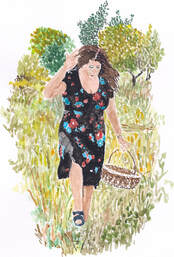
Until now, I haven’t written about the loss of Luciana. What does one say when dear friends disappear and routines are upset. Luciana was so much a part of our life as it relates to both Italy and Salento. I will forever miss her kind welcome to me and Audrey whenever we arrived for our annual visits. We have been treated like royalty by all of the Longo family over the years. However, I think we all agree that it was Luciana that planted the seeds of our friendship and, that was a glue that kept us all together.
For me, it was Luciana’s passion for her grandfather’s garden and all its bounty that I will most remember. She had so many stories of her grandfather’s stewardship of the garden—the time he took out his shotgun to warn thieving neighbors away from the garden is only one of many. I think of the times we visited and she would identify every tree or plant and point out every fruit or vegetable. I have a strong memory (and a picture) of my getting ankle deep in the mud of her garden as I worked my way through various rows of young plants, weeding and mucking in the rich soil. For those fruits that were ripe or ripening, we would be offered samples. And, of course, we would typically end our visits with armfuls or a basketful of produce to take home.
In preparation for our book, I asked Luciana to make a list of the fruits and vegetables she or her grandfather had planted and grown in her garden. Almost unbelievably, that list included: plumbs, apricots, figs, pears, pomegranates, persimmons, oranges, apples, limes, kumquats, cherries, grapes, kiwis, sweet peppers, tomatoes, egg plants, cactus, zucchini, potatoes, lettuce, arugula, celery, almonds, walnuts, and I’m sure I (or she) have missed more than a few. Luciana’s garden also had about 40 family olive trees that were dozens if not hundreds of years old--alberi secolari. She was proud of them and they must have appreciated the attention she gave them because they have survived much of the infamous Xylella fungus that attacked Salento’s olive groves over the past few years. No wonder she had such pride and passion for her garden!
“Salento by 5” has many of my drawings that were inspired by Luciana’s garden, including its rock wall, some garden tools, the garden’s olive trees and its small white-limed structure that Luciana turned from a tool shed into her own charming country house.
The COVID years, were the first in a long while that Audrey and I missed our travel to Salento. However, our usual travel companion, Dave Rorick, was able to make the trip this year and stay in our usual rental apartment in Otranto. Dave got together with fellow authors, Carlo and Lucia Longo and their son, Davide and his friend Francesco for a lunch in Tricase Porto overlooking the Adriatic Sea. As Dave told us of their lunch together, Audrey and I became terribly jealous! . . . We missed seeing Luciana, we missed the opportunity to cry and be sad with our friends about her passing. We missed the occasion her death brought forth to compare feelings about our Italian-American friendship and our mutual lives in retirement. We missed the opportunity to philosophize and hear Carlo recite the words of Kant. And, of course, we missed the seafood pasta and cozze at lunch.
For those of you readers of our book or of this blog who never had the opportunity to meet Luciana in person, I am attaching a video clip of a brief self-introduction that she made as her contribution to a longer video we made about the book in which each of the Salentinian authors introduced him or herself. I’ll quote a statement of Luciana’s that she made near the beginning of the clip that is a classic example of her personality at play:
“I didn’t want to be a rock; I didn’t want to be a tree; I wanted to be a bird!”
Later in the clip, you’ll see Luciana’s reaction when she makes a mistake in what she wanted to say. I view it as the real Luciana bursting through her prepared remarks.
We all miss her dearly, David
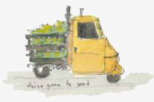
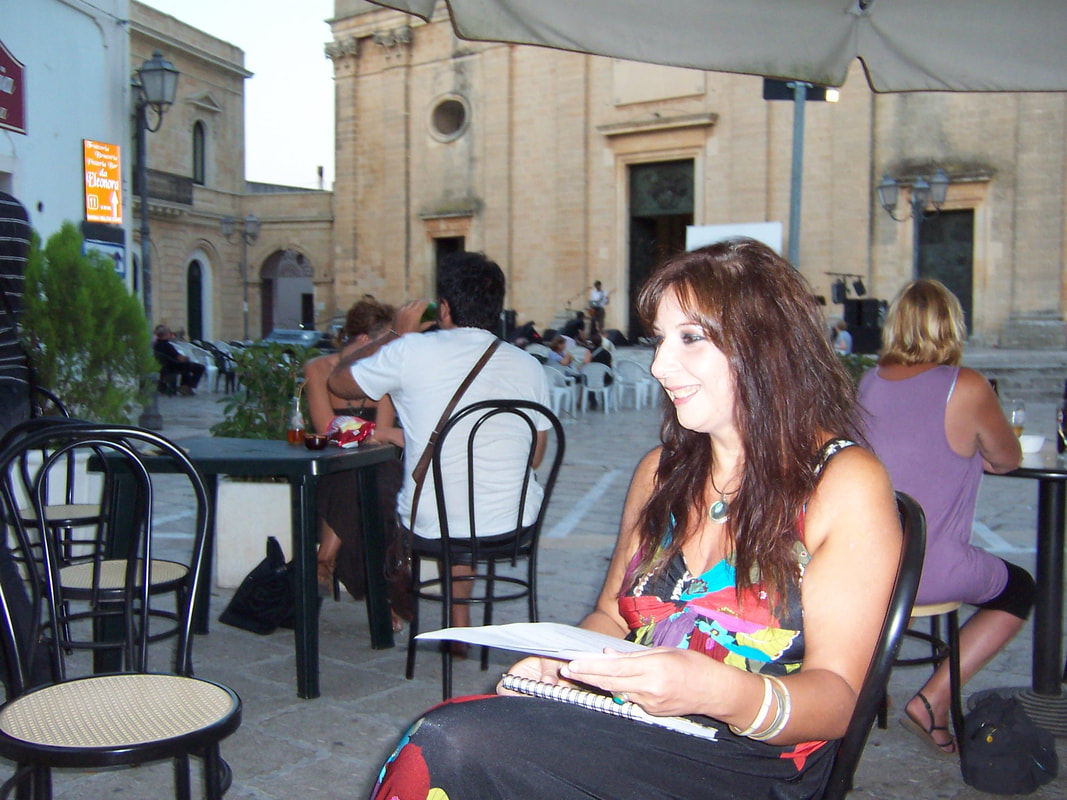
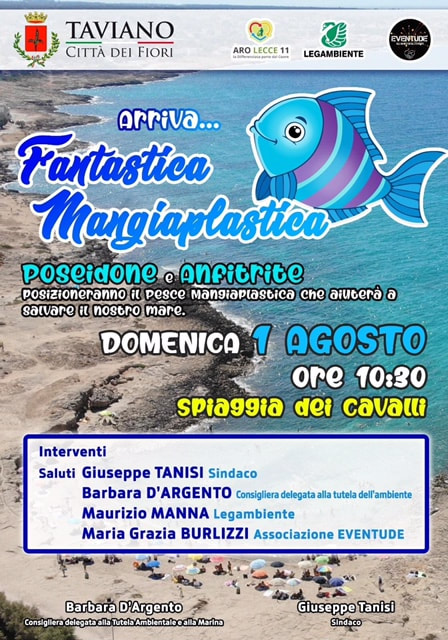
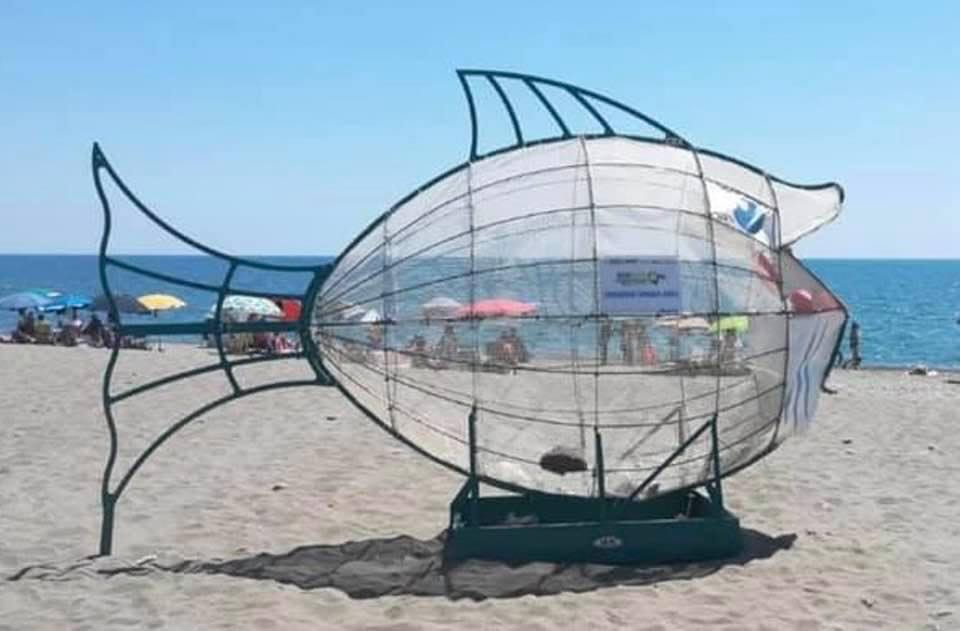
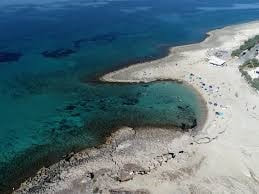

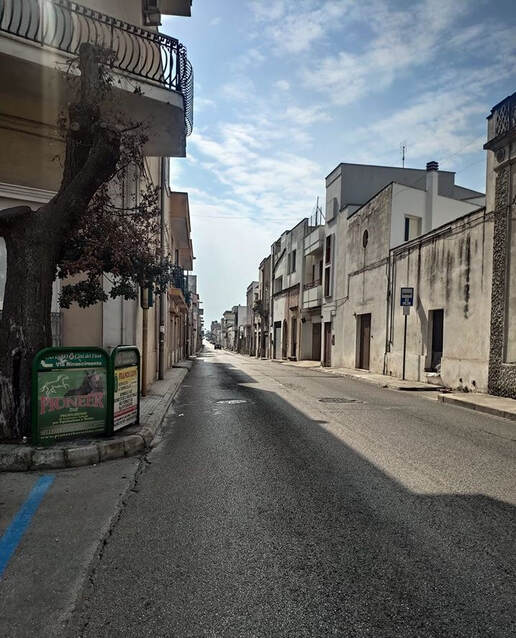
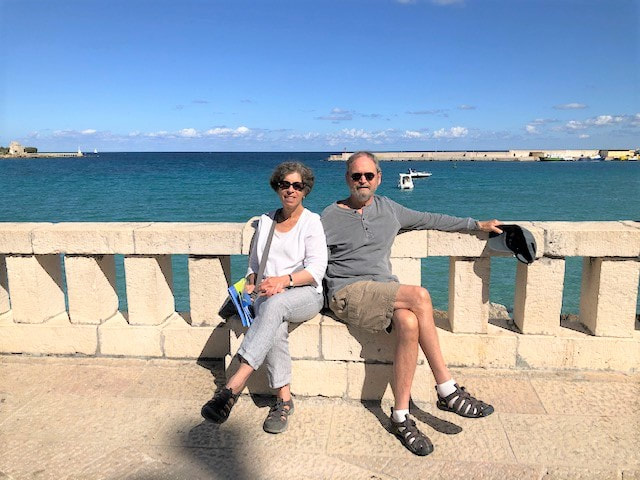
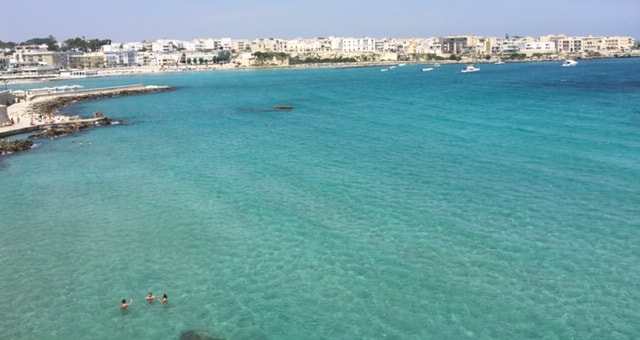
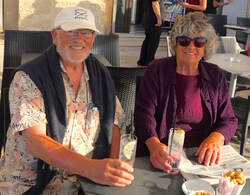
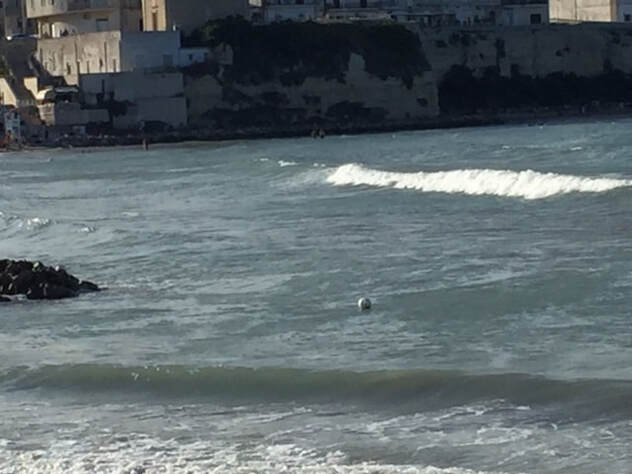
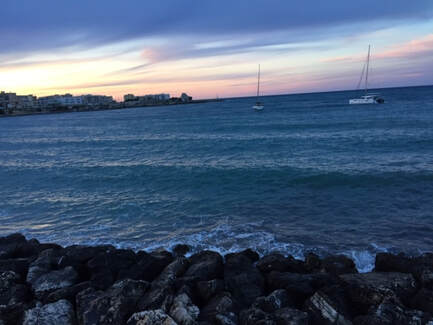
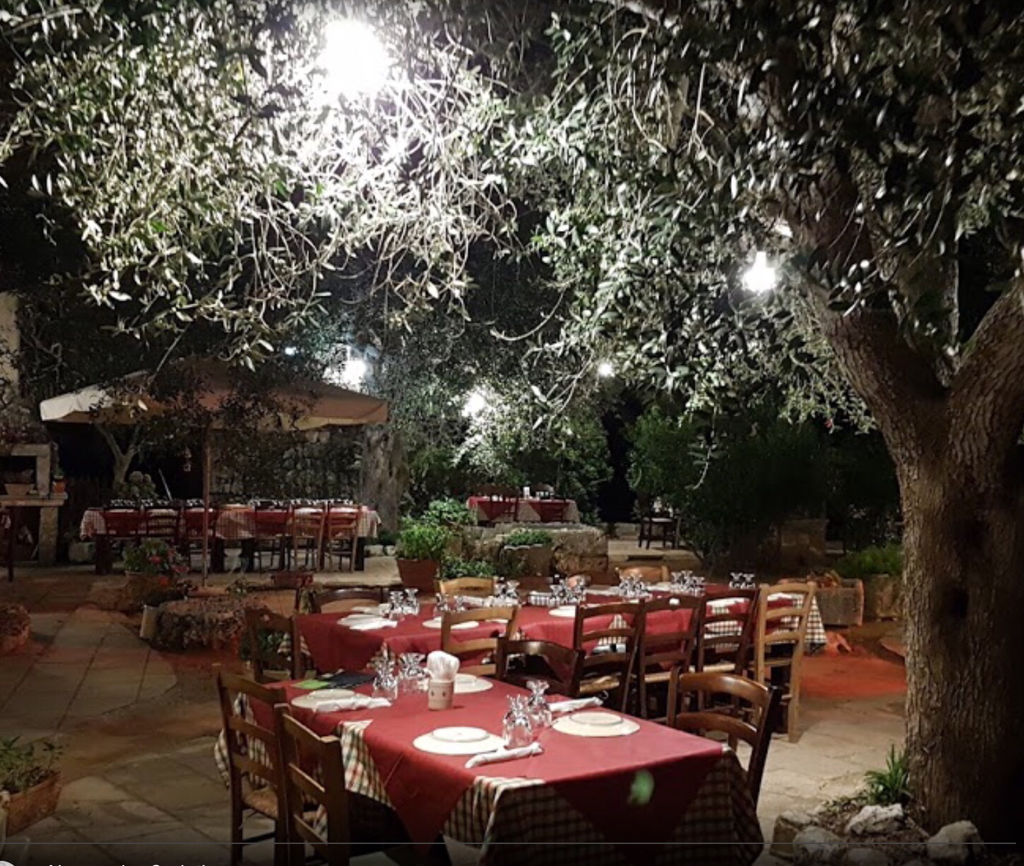
 RSS Feed
RSS Feed